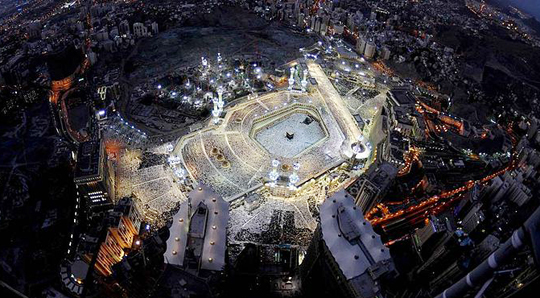
The second year after the Prophet Muhammad (pbuh) and his handful of companions migrated from Makkah to Madinah, fasting in the month of Ramadan was made obligatory to them. “O you who have believed, decreed upon you is fasting as it was decreed upon those before you that you may be righteous (Quran- 2:183),” the Prophet (pbuh) announced the divine revelation before the people.
Today, more than fourteen hundred years down the road (Hijra 1,435), approximately 1.6 billion people around the world- a world that would probably seem alien to the Prophet (pbuh) and his companions- are gearing up to be “among the righteous” and observe fasts in the ninth month of the Islamic calendar.
The month of Ramadan, which is hardly a week away is believed to be the month in which the Quran was revealed as “guidance to mankind”. Muslims around the globe will strive to refrain not only from food, water and sexual intercourse from dawn till dusk, but also abstain from all evils including foul language and impudent behavior. They will also attempt to complete a thorough reading and understanding of the Quran. This annual month-long act of worship is considered as a training to have total control over ones desires.
The act of fasting is often accompanied by night prayers (Qiyam). It is believed that the night in which the Quran was revealed, calledLaylatul Qadr' (the night of power), is “better than a thousand months” implying that rewards for all acts of worship are multiplied and duas (supplications) are answered promptly. Hadith of the Prophet(pbuh) states that the probability of this night falling on the last ten days of Ramadan is higher, and hence it is a common scene to see Muslims flock in hundreds for midnight prayers in Masjids during the last ten days of Ramadan. Charity is also encouraged in this month and many choose to fulfill the obligation of Zakaat during the month.
In the Muslim dominated Middle Eastern countries, Ramadan appears to bring with it a life style change. Office and school hours are reduced to facilitate the night prayers and restaurants remain closed during the day. Even public eating is prohibited by law in some countries, wherein a few non-Muslims also observe fast, sometimes out of curiosity and sometimes just to be part of the crowd.
The Masjid administrators put in a great deal of effort to find good Qaris (reciter of Quran) to lead the long prayers so that the prayers become a pleasurable experience for the praying and non praying folk alike. Some even go to the extent of summoning foreign Qaris.
In India Muslims are considered as a minority community. But, judging by number alone India has the second largest Muslim population in the world. The enthusiasm and excitement of the arrival of this “month of forgiveness” can be seen throughout the country. Masjids are being cleaned and in some cases redecorated, food serving establishments are preparing for special Iftar (breaking of fast) menus and people are stocking up on grocery so that nothing hinders their prayers and fast.
Similar Scenes can be seen in other places with a considerable Muslim population, Northern Africa and Malaysia to name a few.
For a casual observer though the whole scenario is sort of a spooky feeling, for one month it appears as though the Muslim population has increased tenfold. The Masjids are suddenly not big enough, the skullcaps become daily wear, and every small part of daily life, that would just be trivial on normal days, has a sort of religious feel to it.
In the West the effects of Ramadan are not that dramatic owing to the comparatively low population of Muslims. However it is known fact that Islam is a fast growing religion and the Muslims of the West take equal part in the belief that fasting and praying in this month will reap multiplied rewards and forgiveness.

Son of Sharafuddin Soofi, the author is a resident of Mangalore. He is perusing engineering in Manipal.




Comments
Add new comment